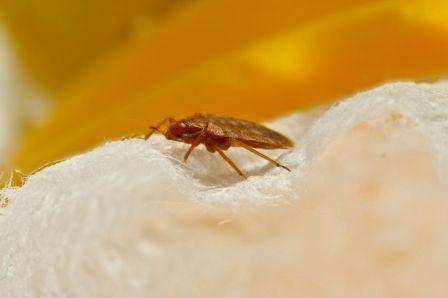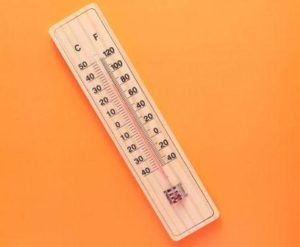Bed bugs are tiny, and they feed on humans and animals for blood. You can find these bed bugs almost everywhere as they expand quickly from one place to another. Nearly every one out of five households suffers from bed bugs issues.
Around 97% of bed bugs experts perform treatments every year. With such a high number of treatments being performed annually might make you wonder how long does a bed bug live?
If you have this question as well, then, no worries. In this article, we will discuss the lifespan of bed bugs and things that can potentially affect their lifespan.
How Long Can A Bed Bug Live?

How long does a bed bug lives depends on certain factors such as temperature, genetics, quality of blood infested, and environmental conditions.
Typically in an ideal situation with low temperature, a bed bug’s life span from egg to death can be around six to twelve months in a laboratory environment.
There are multiple stages in the bed bug life cycle. A female bed bug lays the eggs every day; they produce one to five eggs daily and may make about 500 eggs in their entire life.
The egg might take six to seventeen days to get hatch. Once the egg is hatched, a young bed bug or nymph becomes ready to feed blood.
Bed bugs require to feed blood to grow, each time they feed, they shed their skin, and after successfully feeding and shedding five times, they become fully grown. They often hide in mattresses, box springs, furniture, and more.
What Affects Bed Bugs Life Cycle?
In the real world, with different temperatures and environmental conditions, bed bugs tend to live for a shorter period. Bed bugs that hide and live in human homes face predators like ants, spiders, etc.
Chemicals that people use for cleaning purposes, competition from other bed bugs, risk of getting crushed while feeding and more might affect a bed bug’s lifespan.
How Does Temperature Affect A Bed Bug’s Life Cycle?

Temperature can often change the life span of a bed bug as it affects the development period of the bed bug. Usually, an egg takes around one to two months to develop from hatch to first egg-laying.
However, with a temperature of 80°F (27°C), an egg can develop in one month. But with a temperature of 64°F (18°C), the same egg would take four months to build.
The heat of 125 degrees can also kill bed bugs. When a bed bug comes in contact with extreme heat, it can kill them immediately, whether it’s an adult bed bug or their eggs.
Similarly, if they come in contact with a cold temperature of 0 degrees temperature consistently for around four days or more, they would die.
How To Get Rid Of Bed Bugs
Now that we have discussed the lifespan of bed bugs and what might affect their lifespan. Let’s look into ways you get rid of these bed bugs.
Vacuum

One of the best and most instant ways to kill bed bugs is by using a vacuum. You can directly use a vacuum to reach the areas where you find bed bugs hiding. To comfortably ease up any eggs and bed bugs using a brush over your mattress.
After using the vacuum, ensure you wrap the container and cover it with the contents so it couldn’t cause any spreading.
Steam

Steam is another excellent way to kill bed bugs quickly. Steam of 122°F applied over bed bugs, and their eggs can easily kill them within a few minutes. You can use it over a mattress, soft seams, bed frames, and more.
However, while performing this method, you need to ensure you are careful and aren’t damaging any tools around your house.
Heat Treatment
If the number of bed bugs found in your house is large, it is better to call the professionals and get rid of them through professional treatments.
They usually use the heat method to heat your room with a temperature of 135°F and 145°F. This way, when bed bugs come in contact with such high temperatures, they instantly die. This is a very effective method to eliminate bed bugs from your house.
FAQs
1. How long can a bed bug last without blood?
A bed bug can go on without feeding for around twenty to four hundred days. However, the temperature and humidity also play a crucial role in survival as bed bugs can go on longer in low temperatures.
2. Why do bed bugs hide in mattresses?
Hiding in a mattress helps bed bugs to reach you easily at night for feeding, due to which they hide in areas that are closer to your bed, such as a mattress, box spring, furniture and more.
You May Also Like To Read:
Conclusion
The lifespan of a bed bug might vary as per the environment and conditions they are around.
Here we have mentioned all about how long can bed bugs live, along with things that can impact their lifespan and how to get rid of these bed bugs.
If you have doubts regarding bed bugs, then tell us in the comments.


